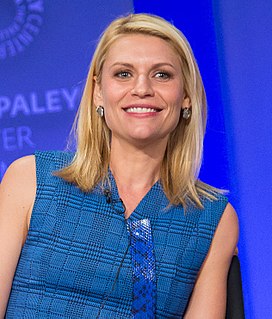A Quote by G. H. Hardy
Most people are so frightened of the name of mathematics that they are ready, quite unaffectedly, to exaggerate their own mathematical stupidity.
Quote Topics
Related Quotes
Most people have some appreciation of mathematics, just as most people can enjoy a pleasant tune; and there are probably more people really interested in mathematics than in music. Appearances suggest the contrary, but there are easy explanations. Music can be used to stimulate mass emotion, while mathematics cannot; and musical incapacity is recognized (no doubt rightly) as mildly discreditable, whereas most people are so frightened of the name of mathematics that they are ready, quite unaffectedly, to exaggerate their own mathematical stupidity
Mathematics is a logical method. . . . Mathematical propositions express no thoughts. In life it is never a mathematical proposition which we need, but we use mathematical propositions only in order to infer from propositions which do not belong to mathematics to others which equally do not belong to mathematics.
Here is a quilted book about mathematical practice, each patch wonderfully prepared. Part invitation to number theory, part autobiography, part sociology of mathematical training, Mathematics without Apologies brings us into contemporary mathematics as a living, active inquiry by real people. Anyone wanting a varied, cultured, and penetrating view of today's mathematics could find no better place to engage.
To criticize mathematics for its abstraction is to miss the point entirely. Abstraction is what makes mathematics work. If you concentrate too closely on too limited an application of a mathematical idea, you rob the mathematician of his most important tools: analogy, generality, and simplicity. Mathematics is the ultimate in technology transfer.
I have a name for people who went to the extreme efficient market theory-which is "bonkers". It was an intellectually consistent theory that enabled them to do pretty mathematics. So I understand its seductiveness to people with large mathematical gifts. It just had a difficulty in that the fundamental assumption did not tie properly to reality.
One cannot inquire into the foundations and nature of mathematics without delving into the question of the operations by which the mathematical activity of the mind is conducted. If one failed to take that into account, then one would be left studying only the language in which mathematics is represented rather than the essence of mathematics.
In the field of Egyptian mathematics Professor Karpinski of the University of Michigan has long insisted that surviving mathematical papyri clearly demonstrate the Egyptians' scientific interest in pure mathematics for its own sake. I have now no doubt that Professor Karpinski is right, for the evidence of interest in pure science, as such, is perfectly conclusive in the Edwin Smith Surgical Papyrus.
Mathematical thinking is not the same as doing mathematics - at least not as mathematics is typically presented in our school system. School math typically focuses on learning procedures to solve highly stereotyped problems. Professional mathematicians think a certain way to solve real problems, problems that can arise from the everyday world, or from science, or from within mathematics itself. The key to success in school math is to learn to think inside-the-box. In contrast, a key feature of mathematical thinking is thinking outside-the-box - a valuable ability in today's world.
For most problems found in mathematics textbooks, mathematical reasoning is quite useful. But how often do people find textbook problems in real life? At work or in daily life, factors other than strict reasoning are often more important. Sometimes intuition and instinct provide better guides; sometimes computer simulations are more convenient or more reliable; sometimes rules of thumb or back-of-the-envelope estimates are all that is needed.





































